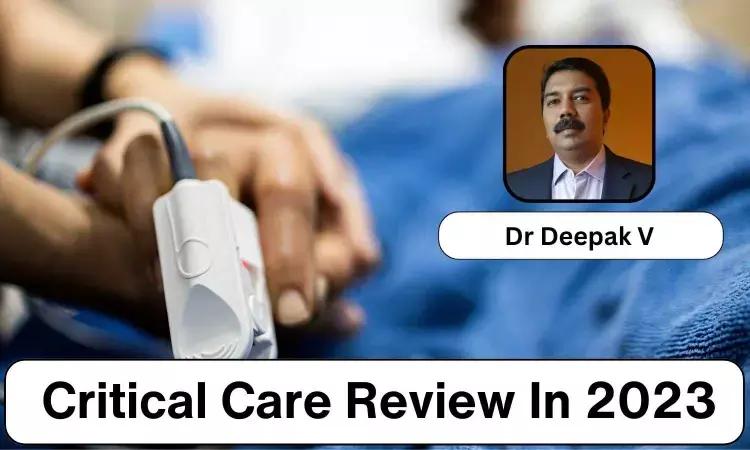Critical Care Achievements
Critical care, once a nascent speciality, gained prominence when ICUs were inundated with COVID-19 patients in 2020. The demand for critical care has since escalated across healthcare institutions due to an ageing population. As a result, the speciality is now branching into various subspecialties such as neurocritical care, transplant critical care, oncological critical care, and more. This diversification is expected to enhance expertise in healthcare delivery.
Major Achievements
The major achievements had happened in the following four areas:
- Application of artificial intelligence (AI) in critical care
- Precision medicine
- Diagnostics
- Mechanical ventilation
- Ambulatory ECMO
Application of Artificial Intelligence in Critical Care
One of the major achievements in critical care in the year 2023 was the application of artificial intelligence in critical care. Traditional critical care has limitations in fully understanding and addressing the complexities of patients' health, predicting deterioration, and providing timely treatment. AI offers numerous applications for the critically ill.
Large language models (LLMs) are adept at summarising vast amounts of medical literature, assimilating patient vitals, and other parameters from monitors and charts. They can apply evidence-based medicine to enhance decision-making. However, a human-in-the-loop strategy, rather than relying solely on AI, will facilitate better individualised care.
The Society of Critical Care Medicine (SCCM) and the European Society of Intensive Care Medicine (ESICM) have developed processes for de-identifying data to ensure compliance with all privacy and legal considerations.
Precision Medicine
Last year had seen the successful application of precision medicine in critical care. It entails the individualization of therapies based on genomic sequencing.
Advances in pharmacogenomics offer the opportunity to tailor drug selection and dosing based on genetic variants that modify drug response and metabolism. Mortality predictors, utilising a combination of clinical and metabolomics data, aid in the more efficient allocation of resources.
Patients at higher risk are further categorised based on predictive models, which identify those who may benefit from therapies beyond standard care. While standard prediction models incorporate data such as demographic variables, vitals, and labs, AI-aided prediction models utilise data from genomics, metabolomics, transcriptomics, and proteomics, allowing for a more accurate prediction of disease status and thereby facilitating highly personalised care.
Diagnostics
Last year also witnessed advances in diagnostics in Critical Care. The use of molecular diagnostics has revolutionised the diagnosis of infections in the ICU. The results are quicker, with an average turnaround time (TAT) of 2 to 24 hours, compared to 3-5 days with conventional techniques.
Multiplex PCR is the most commonly used technique, where more than one target sequence can be amplified in a single tube. This technique has become very useful for the early identification of the organism causing the infection, which aids in targeted therapy.
Mechanical Ventilation
Many patients in ICUs require mechanical ventilation to support oxygenation and carbon dioxide removal. However, this machine can introduce several adverse effects in patients, with the most common being ventilator asynchrony, which can result in poor clinical outcomes.
Growing evidence suggests that using NAVA (Neurally Adjusted Ventilatory Assist) guided by the electrical activity of the diaphragm optimises patient-ventilator synchronisation, thereby avoiding many ventilator-induced injuries.
Ambulatory ECMO
Extracorporeal membrane oxygenation (ECMO) is a life support modality for patients with respiratory or cardiac failure. Conventionally, patients undergoing ECMO had to remain bedridden and reliant on a ventilator. However, early mobilisation can expedite recovery.
The University of Michigan has developed an artificial pump lung system. Additionally, the paracorporeal ambulatory lung system being developed by the University of Pittsburgh promises to enhance the treatment of patients awaiting lung transplants.
Conclusion
Here are the major achievements in critical care that hold importance for clinicians. The outcome resulting from these developments will depend on patient selection, expertise in data interpretation, and clinical acumen.
Disclaimer: The views expressed in this article are of the author and not of . The Editorial/Content team of has not contributed to the writing/editing/packaging of this article.



0 Comments
Post a comment
No comments yet. Be the first to comment!